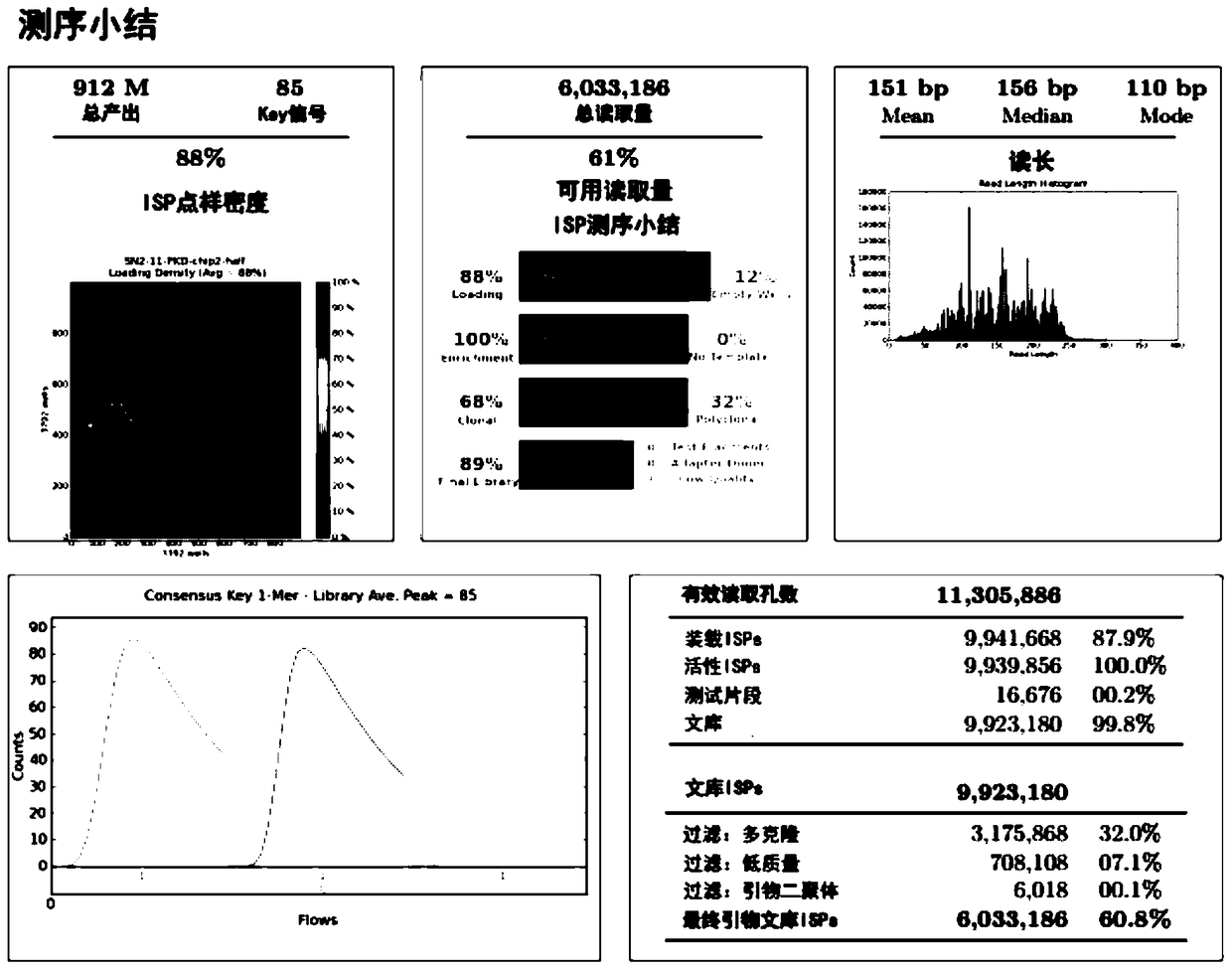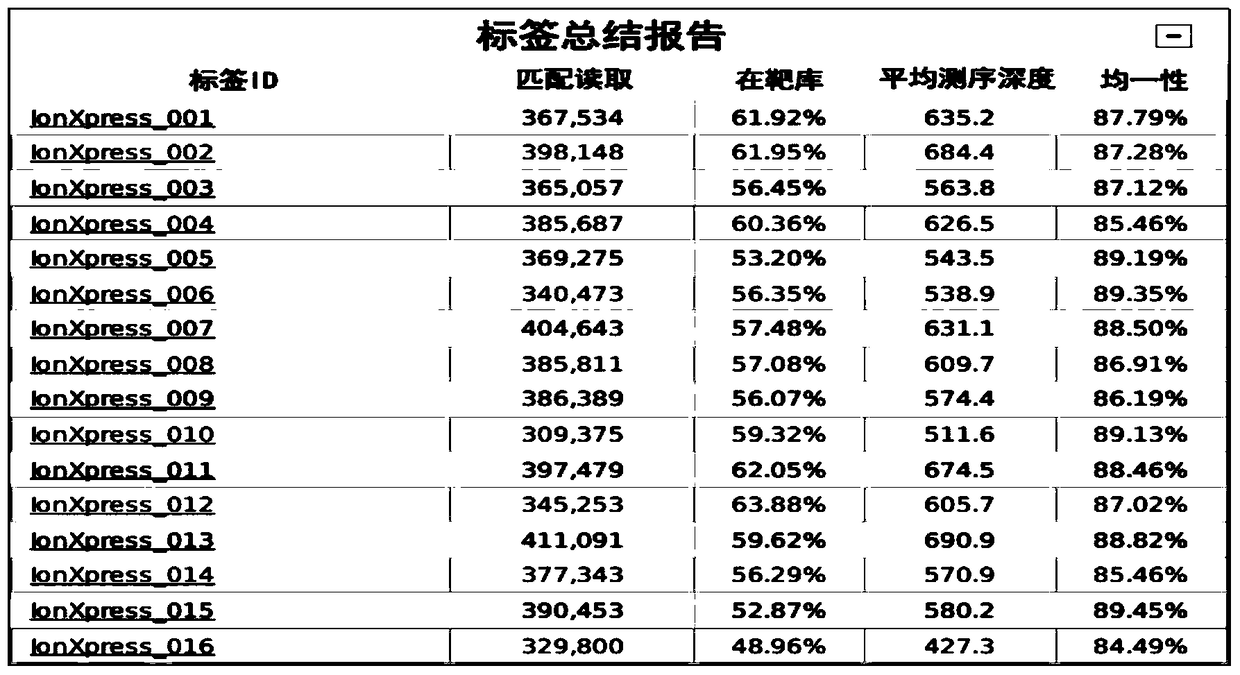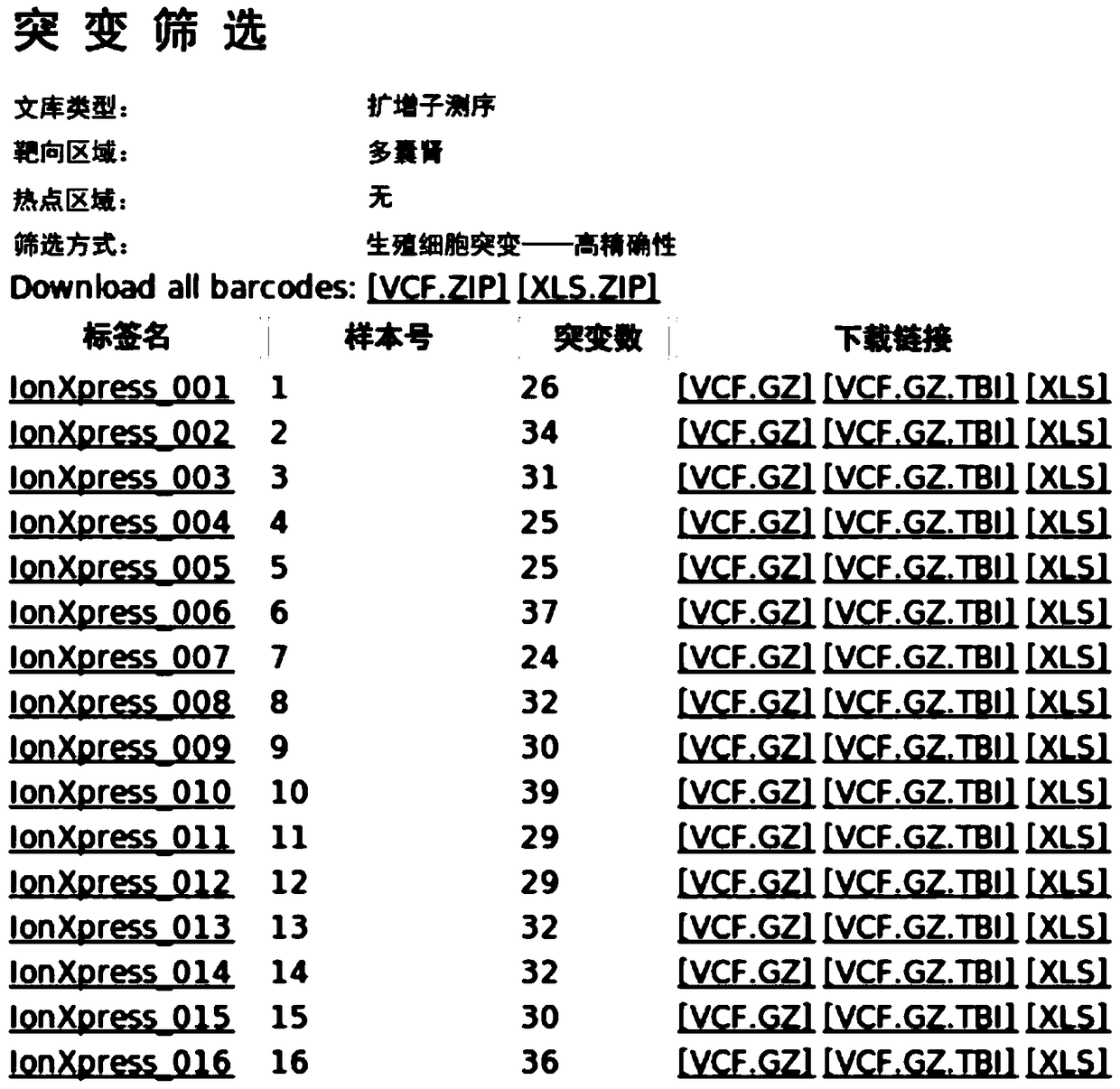A dna library for detecting and diagnosing polycystic kidney disease-causing genes and its application
A DNA library and pathogenic gene technology, applied in the field of DNA library, can solve the problems such as the inability to accurately distinguish the specific types of polycystic kidney disease, the inability to accurately diagnose young patients, and the inability to meet the timeliness of multi-sample detection, so as to avoid recurrence. Risk of polycystic kidney disease, early occultation, and improved survival
- Summary
- Abstract
- Description
- Claims
- Application Information
AI Technical Summary
Problems solved by technology
Method used
Image
Examples
Embodiment 1
[0053] 1. Reagents used in the method:
[0054] Ion AmpliSeq TM Library Kit 2.0, Ion PGM TM Template OT2200Kit v3, Ion Sequencing 200Kit v2, Ion Xpress Barcode Adapters 1-16Kit, Ion 318 TM Chip Kit v2
[0055] 2. Specimen collection and preservation
[0056] (1) Specimen collection: The specimen is the peripheral blood of the patient. Blood is 5ml of venous blood taken routinely, treated with EDTA anticoagulant.
[0057] (2) Storage: It can be detected immediately, stored at 4°C for one week, and stored at -80°C for more than one week.
[0058] 3. Detection steps and result analysis:
[0059] (1) Extraction of genomic DNA of specimens: DNA extraction of specimens was carried out according to the operation instructions of the blood DNA extraction kit of Tiangen Biochemical Technology (Beijing) Co., Ltd.
[0060] (2) Super multiplex PCR amplification and library building of the target detection area: the whole exons of the 6 genes involved in the present invention ar...
Embodiment 2
[0099] In the present invention, the primer pool contains 3 polycystic kidney disease-causing genes newly discovered by the inventor, as shown in the following table:
[0100] serial number
gene name
OMIM number
Associated disease
1
TSC1
605284
autosomal dominant polycystic kidney disease
2
TSC2
191092
autosomal dominant polycystic kidney disease
3
DKK3
605416
autosomal dominant polycystic kidney disease
[0101] The newly discovered 3 polycystic kidney disease genes come from the research accumulation and family investigation of the inventors over the years. The inventor first searches the known polycystic kidney disease-causing genes through the KEGG signaling pathway and the homologous gene library to find the homologous genes of the known polycystic kidney disease genes and the key genes on the same pathogenic pathway. Then, targeted high-throughput sequencing of candidate disease-causing genes was...
PUM
 Login to View More
Login to View More Abstract
Description
Claims
Application Information
 Login to View More
Login to View More - Generate Ideas
- Intellectual Property
- Life Sciences
- Materials
- Tech Scout
- Unparalleled Data Quality
- Higher Quality Content
- 60% Fewer Hallucinations
Browse by: Latest US Patents, China's latest patents, Technical Efficacy Thesaurus, Application Domain, Technology Topic, Popular Technical Reports.
© 2025 PatSnap. All rights reserved.Legal|Privacy policy|Modern Slavery Act Transparency Statement|Sitemap|About US| Contact US: help@patsnap.com



